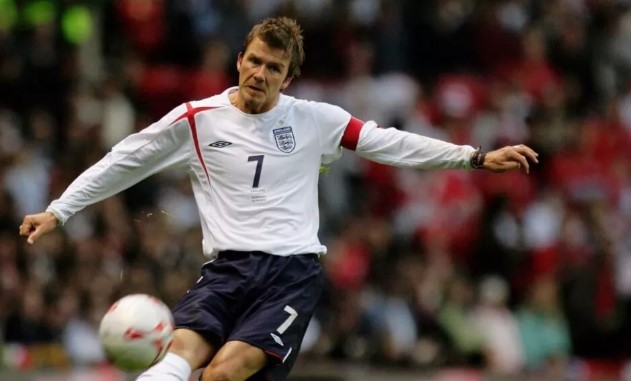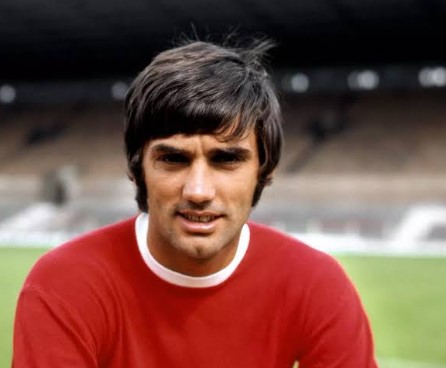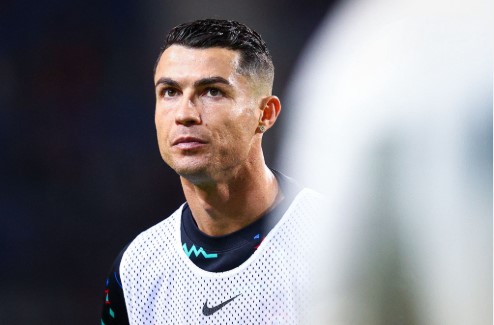7: The number jersey in football (soccer) has become one of the most iconic and sought-after numbers in the sport’s history. Worn by some of the greatest players to ever grace the pitch, the number has transcended its numerical value to represent skill, flair, charisma, and a winning mentality. From the legendary George Best to the modern-day superstar Cristiano Ronaldo, the number 7 has been synonymous with players who have made a significant impact not only on the field but also in the cultural landscape of football.
This article will delve into the rich history of the number 7 jersey in football, examining the iconic players who wore it, the significance of the number, and the impact it has had on the global footballing community.
The Origins of Jersey Number

The numbering system in football was first introduced in the early 20th century. Initially, players were assigned numbers based on their positions, with numbers 1 through 11 corresponding to a team’s starting formation. The number traditionally represented the right-wing position, a spot typically occupied by fast, skillful players capable of creating scoring opportunities.
In the early days of football, the number 7 was not necessarily considered the most prestigious or iconic jersey. However, as football evolved and the style of play became more dynamic, the role of the right winger, and therefore the significance of the number 7, began to grow.
Iconic Players Who Wore the Number
Over the decades, many of football’s most famous players have worn the number 7 jersey. These players have come from various eras and regions, yet they all share a common trait: they were exceptional talents who elevated the number to legendary status.
Notable Footballers Who Wore Jersey Number
| Player Name | Nationality | Years Active | Clubs Represented | Major Achievements |
|---|---|---|---|---|
| George Best | Northern Irish | 1963-1984 | Manchester United, Fulham, etc. | 1968 Ballon d’Or, 2x English First Division titles, FA Cup |
| Cristiano Ronaldo | Portuguese | 2002-2023 | Sporting CP, Manchester United, Real Madrid, Juventus, Al Nassr | 5x Ballon d’Or, 5x UEFA Champions League titles, 700+ career goals |
| David Beckham | English | 1992-2013 | Manchester United, Real Madrid, LA Galaxy, PSG | 6x Premier League titles, UEFA Champions League, 2001 Best Player ESPY Award |
| Kaká | Brazilian | 2001-2017 | São Paulo, AC Milan, Real Madrid, Orlando City | 1x Ballon d’Or, 1x UEFA Champions League, 1x Copa Libertadores |
| Luis Suárez | Uruguayan | 2005-2023 | Ajax, Liverpool, Barcelona, Atlético Madrid | 4x La Liga titles, 1x UEFA Champions League, 1x Copa del Rey |
| Raúl González | Spanish | 1994-2015 | Real Madrid, Schalke 04 | 3x UEFA Champions League titles, 6x La Liga titles |
| Roberto Carlos | Brazilian | 1992-2015 | Real Madrid, Fenerbahçe, Corinthians | 1x World Cup, 4x La Liga titles, UEFA Champions League |
| Eric Cantona | French | 1984-1997 | Leeds United, Manchester United, Marseille | 4x Premier League titles, 2x FA Cups |
George Best: The Pioneer of Number 7’s Fame

George Best, often hailed as one of the greatest talents football has ever seen, is widely regarded as the first player to truly elevate the significance of the number. Best’s combination of dribbling skill, creativity, and flair made him a global sensation.
His greatest achievements include winning the 1968 Ballon d’Or and leading Manchester United to their first European Cup triumph in 1968. The Northern Irish winger’s ability to beat defenders, score stunning goals, and captivate fans with his style of play cemented the number as synonymous with individual brilliance.
Cristiano Ronaldo: The Modern-Day Legend

In the modern era, Cristiano Ronaldo has taken the legacy of the number 7 to unparalleled heights. Ronaldo’s extraordinary work ethic, physical prowess, and relentless pursuit of goals have made him one of the most celebrated athletes in history. Having worn the number at clubs like Manchester United, Real Madrid, Juventus, and now Al Nassr, Ronaldo’s impact on football is immense.
With over 700 career goals and five Ballon d’Or awards, he has broken countless records and has become a global icon of the sport. Ronaldo’s achievements make him the most iconic player to ever wear the number jersey in the modern era.
David Beckham: A Cultural Icon

David Beckham may not have been the most skillful player to wear the number, but his influence on and off the pitch was revolutionary. Beckham’s combination of passing, crossing, and free-kick mastery made him an integral part of Manchester United’s success in the late 1990s and early 2000s.
A global ambassador for the sport, Beckham’s influence extended far beyond football. His time in the United States with LA Galaxy helped raise the profile of Major League Soccer (MLS), and his style, charisma, and business ventures have made him one of the most recognizable faces in the world.
Other Notable Players
- Kaká was a dazzling Brazilian talent who wore the number during his prime at AC Milan, where he won the Ballon d’Or in 2007.
- Raúl González was the face of Real Madrid for over a decade, becoming one of the club’s all-time greats with his leadership and consistent goal-scoring ability.
- Luis Suárez is one of the most lethal strikers of his generation, who wore the number 7 for Barcelona and is remembered for his clinical finishing and notorious on-field antics.
The Significance of Number in Football
The number 7 has become more than just a shirt number in football. It has become a symbol of greatness and an embodiment of the qualities associated with legendary players.
1. The Right Winger Legacy
Traditionally, the number 7 has been assigned to the right-winger, the player who is expected to provide width, pace, and creativity to the attack. In this role, the number 7 was often associated with players who could deliver decisive crosses or cut inside to score spectacular goals.
2. The Playmaker’s Number
Over time, the number 7 evolved to symbolize not just pace and crossing ability, but also playmaking and the ability to influence the game. Players like Beckham, Cantona, and even Ronaldo have worn the number 7 while often operating as central playmakers, leading their teams with vision and creativity.
3. Charisma and Personality
Perhaps more than any other number, the number 7 has come to symbolize a certain charisma and confidence. The players who wear it tend to have larger-than-life personalities, whether through their style of play, fashion choices, or even controversies.
The Impact of Number 7 on Football Culture
The number 7 has become a cultural phenomenon, influencing not only football but also fashion, music, and entertainment.

1. The Global Icon Status
Players who wear the number 7, like Cristiano Ronaldo, have global followings that extend far beyond football fans. Their influence transcends borders, and their branding power is immense. Ronaldo’s numerous endorsement deals, including those with Nike and his own CR7 brand, have made him a symbol of success and excellence.
2. Inspiration for Young Players
For generations of young footballers, the number 7 jersey has served as a source of inspiration. Many young talents aspire to emulate the styles of their heroes, whether it’s George Best’s dribbling magic, Beckham’s free-kicks, or Ronaldo’s goal-scoring prowess. The iconic number 7 motivates countless aspiring players to pursue their dreams in the sport.
3. Marketing and Commercial Influence
The number 7 also plays a significant role in marketing and commercial strategies for clubs. The demand for shirts worn by iconic number 7 players has been immense. For example, Ronaldo’s transfer to Juventus in 2018 saw a massive spike in shirt sales, and clubs often leverage the number 7 for promotional purposes.
The Future of Jersey Number 7
With players like Cristiano Ronaldo reaching the twilight of their careers, the question remains: who will be the next iconic player to carry the number 7 jersey into the future?
The next generation of superstars, such as Kylian Mbappé, Erling Haaland, or even a young prodigy yet to emerge, may take up the mantle of the number 7. The legacy of this number will continue to evolve, but one thing is certain — it will always carry with it the weight of history and the pressure of living up to the greatness of those who wore it before.

The number 7 has become one of the most iconic symbols in football, worn by some of the greatest players to ever grace the sport. From George Best’s dribbling wizardry to Cristiano Ronaldo’s unparalleled goal-scoring feats, the number 7 is synonymous with excellence, flair, and charisma. As we look to the future, the legacy of the number 7 will continue to inspire generations of footballers and fans alike, ensuring that it remains a central figure in the world of football for years to come.
